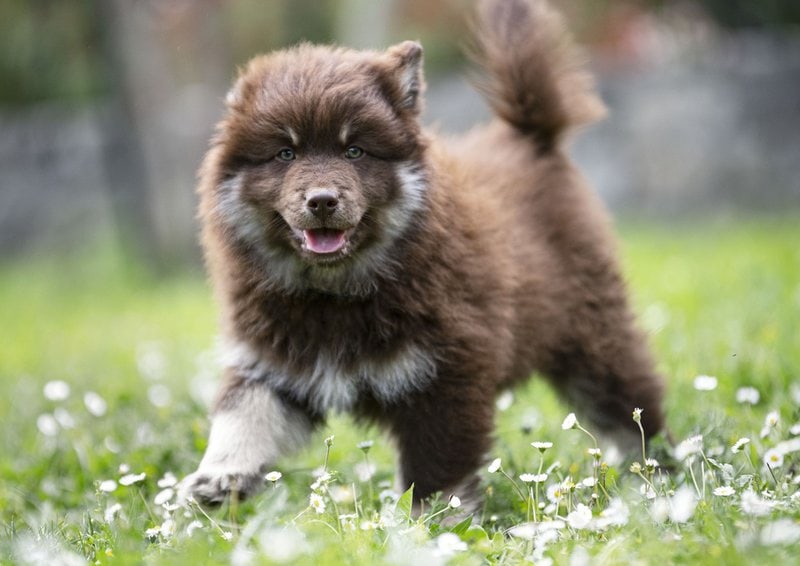Nothing is as cute as watching your pooch chase its tail, and when the dog spins around and then gets dizzy, it makes for a good laugh. Whether your pooch does it when you prepare its favorite meal, show them a treat or reach for its favorite toy, this behavior is not uncommon. So, why do dogs randomly spin in circles?
Spinning in circles is normal behavior for many dogs just before lying down, defecating, or urinating. However, apart from those instances, spinning in circles is often a sign of an underlying health issue or a serious problem that requires immediate veterinary assistance.
However, it should be considered uncommon when the dog spins in circles for many minutes multiple times a day, interfering with its daily activities such as eating. Your pooch’s behavior is one of the best clues to what is happening inside its body. Read on to learn why your pooch spins in circles and if you can control it.
Why Do Dogs Spin In Circles?
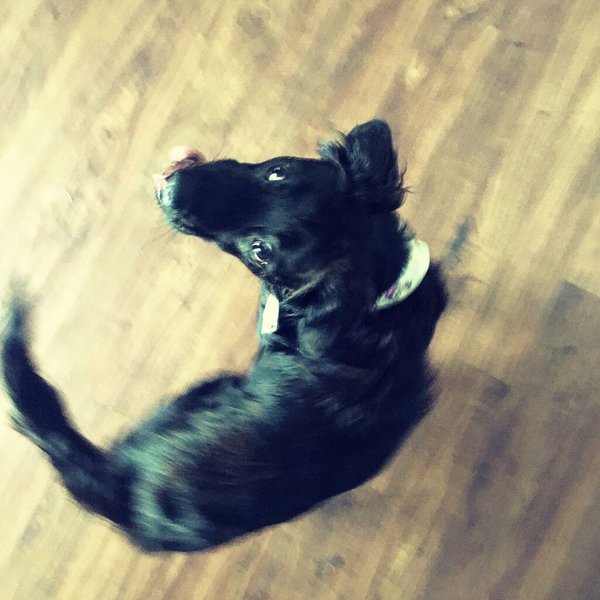
The direct answer is that no one knows why dogs spin in circles. However, science has offered several explanations. So if your dog spins out of excitement and only occasionally happens, there is nothing to worry about.
Nevertheless, there are levels to a dog spinning in circles. Notably, the situations around them, the frequency, and their environment will often indicate the main reason your pooch is spinning in circles.
So, is spinning in circles normal? Or does your pooch have a problem? Here are some theories to explain why dogs spin:
Call of Nature
When your pooch spins in circles while smelling the ground, it is often for a simple reason.
- The dog wants to go to the restroom and needs to go outside immediately.
- Some dogs do this to ensure that no predators attack them while being vulnerable.
- Some dogs will spin in circles to get their intestines working before doing an energy-intensive squat.
If your pooch does this, you can consider yourself lucky, as you will always get a warning before your dog messes up your neighbors’ yard.
Health Issues
Spinning in circles also could mean health issues in your pooch. For instance, if your pooch is quite elderly, circling could signify issues with its cognition, whether hearing, memory or vision. In addition, it can be a symptom of several neurological medical conditions such as brain tumors.
The sooner you take your pooch to a veterinarian and understand what is causing the cycling, the better you can take action. Some of these medical conditions include:
Ear Infection
An ear infection is among the common reasons why dogs spin in circles. This medical condition will have additional symptoms such as redness, head shaking, scratching at the ear, and offensive smells from the ear.
An ear infection should be treated immediately as ear infections can worsen by getting deeper into your pooch’s ear and causing more serious problems.
Treatment for ear infections may involve a deep ear cleaning that must be done to prevent damage to your pooch’s inner ear and prescription medications such as antibiotics.
Although ear infections are the most common, your pooch could also get an infection somewhere else in its body that is causing discomfort or interfering with its balance. All in all, it’s important to work with a professional vet to determine the root cause without causing more harm to your pooch.
Vestibular Syndrome
This medical condition is common in older dogs where it affects the dog’s inner ear and balance. The vestibular syndrome has no definite cause, but health experts believe it can be caused by various factors nutritional deficiency, abnormal tissue growth, infection, or ear damage because of an injury.
Aside from circling, other symptoms of Vestibular Syndrome will include excessive drooling, frequently falling, and walking with its head down. However, your pooch will need to be examined by a vet to diagnose this condition.
Neurological Disease or Bodily Injury
An injury or disease that affects your dog’s neurological system can result in your pooch walking in circles. Common diseases that cause incoordination include:
Systemic Lupus Erythematosus (SLE)
This is an autoimmune condition that is genetically predisposed to affect Poodle, Irish Setter, German Shepherd, Afghan Hound, Collie, Beagle, and Shetland Sheepdog.
Distemper
It is a deadly disease with other symptoms like excessive thirst, nasal discharge, aggression, wandering, and lethargy.
Neosporosis
It is a potentially deadly disease spread by parasites found in raw meat and the feces of infected animals.
In addition, a back, neck, or head injury that impacts the neurological system can also result in incoordination, loss of appetite, whining, and pupil dilation. If you observe any symptoms, rush your pooch to the nearest vet for a detailed diagnosis and immediate treatment.
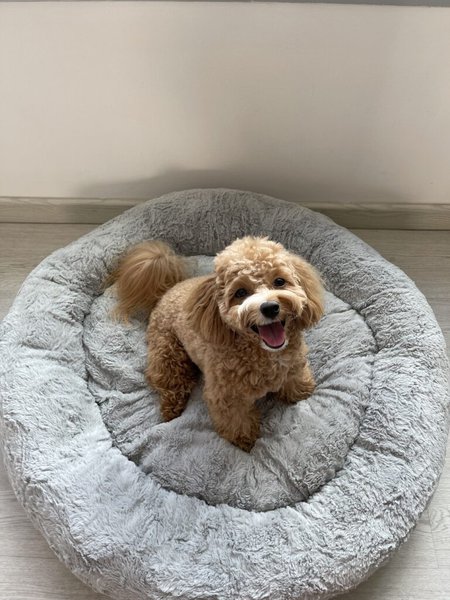
Canine Compulsion
The concept of canine compulsion is the same as what causes humans to bite their nails down when they experience severe stress. For example, a dog who spins in circles obsessively may be dealing with intense frustration, leading to repetitive actions.
If your dog spins in circles and you can’t understand why this happens, the first step should be to look deeper into its life. The reason why your pooch might be spinning in circles could be a lack of enough attention, or it feels lonely from being left home alone all day.
Investigate what change your pooch might b experiencing, which is troubling, and get on the path to fix it, whether it will need a little extra TLC (tender, love, and care) and attention on your part or a visit to the vet.
However, spinning in circles is one of the many manifestations of canine compulsions. Other manifestations can include symptoms such as chasing shadows, snapping flies, and immoderate barking.
Anxiety And Fear
When a dog is in a high-anxiety situation, its natural response could be to circle its immediate area obsessively. Although spinning in circles is normal, some dogs do it because they are anxious or are dealing with obsessive-compulsive tendencies.
Perhaps your pooch is afraid of a larger dog that is on the verge of attacking and doesn’t know how to navigate the situation. It could also be that they have recently lost an animal companion or have experienced a significant change.
Consider taking your pooch to get examined to determine what might be causing the spinning.
Before Bedtime
This is among the most natural reasons why dogs spin in circles. When a pooch spins in circles, it may be acting naturally as this behavior is regarded to be a trace of its wild origins.
In the wild, dogs dig out their resting spots, and once they are done, they examine it a few times by walking around the spot in circles.
If your dog is circling its bedding place before going down for a nap or the night, it’s essentially checking its work and ensuring it’s a cozy and safe place to sleep.
In addition, dogs will circle an area as a way to drive out any pesky bugs that may be lingering in their bedding spots.
Do All Dogs Spin In Circles?
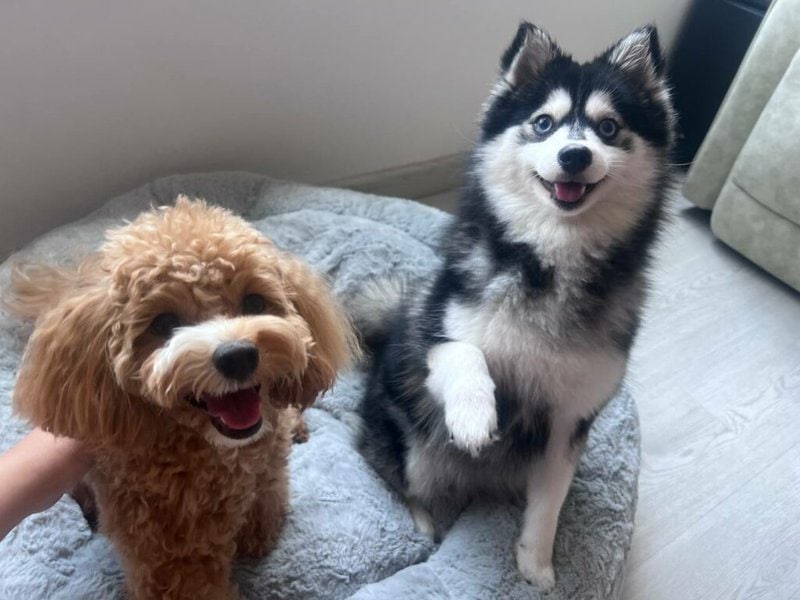
No, not all dogs get the instinct to spin in circles. Generally, the behavior of dogs varies in terms of sleeping or needing to have a nature call.
For example, some dogs will collapse to the floor when they want to rest, while others will slide down in a yoga-like position on the floor.
Additionally, pooches will have different ways of telling their owner that they need to go to the bathroom, and excited dogs will also exhibit various behaviors.
Although you pamper your pooch in the house, it may still have some wild instincts that have not disappeared. So, even though spinning could be a communication method, it could be an instinct.
Therefore, not all dogs spin in circles, and also, all the dogs who spin in circles don’t do it for the same reason.
Is It Normal Behavior For Dogs To Spin In Circles?
Yes, some level of spinning in circles is normal behavior in dogs. However, this is only if your pooch can be easily distracted from them, and it also doesn’t do the spins excessively.
When your pooch’s spinning doesn’t interfere with its drinking, eating, sleeping, or exercise habits, it should not raise any alarms for dog owners.
Dogs spin around when excited about something, apart from spinning in circles out of their protective instincts. Although this could be a daily thing, it is normal behavior.
Conversely, compulsive behavior in dogs is an abnormal response to stimulation. The behavior will be repetitive, consistent, lack purpose, and may happen several times for a few minutes.
For example, it might start as your pooch feeling two different feelings, which will lead to them getting confused and spinning in circles chasing their tail.
Some dogs spin in circles before sleeping or defecating, which may be considered normal behavior. However, if your dog has never behaved this way before, it might be a sign that there is a problem.
In addition, if your pooch spins in circles without the normal triggers and the spinning and compulsive behaviors are increasing, then there might be an underlying issue. Again, always consult your veterinarian if you suspect anything.
What Are The Best Treatments For The Medical Conditions Caused By Spinning In Circles?
The best prevention and treatment methods will be presented to you according to what has been causing your pooch to spin in circles.
For some causes, the treatments may be ongoing for the life of your pooch, but other causes may have a simpler solution like providing more exercise, more training, increased playtime, or changing its daily diet.
Notably, no matter the type of treatment needed, pouring large amounts of attention, affection, and affirmation to your pooch will always be part of the treatment plan.
So, to reduce the odds of your dog suffering from serious conditions that cause the spinning in circles, you can take a few steps. They include:
Annual Vet Checkups
Annual vet checkups are important to stay on top of your pooch’s health. During the wellness checkup, your vet will examine the dog’s vital signs and check the dog’s vision, hearing, weight, and skin.
The checkups will also include vaccinations against deadly diseases, and your vet might perform blood work to diagnose any developing condition.
Know Your Dog Well
Most dog owners love their dogs and know their normal behavior. However, it is also important to watch your dog when they are at a park or interacting with other people, dogs, or environmental triggers.
Monitoring your pooch like that helps minimize the risk of injury by realizing what normal and irregular behavior your pooch is. If you know your dog, you will easily notice an injury quickly and take swift action to provide the most appropriate treatment.
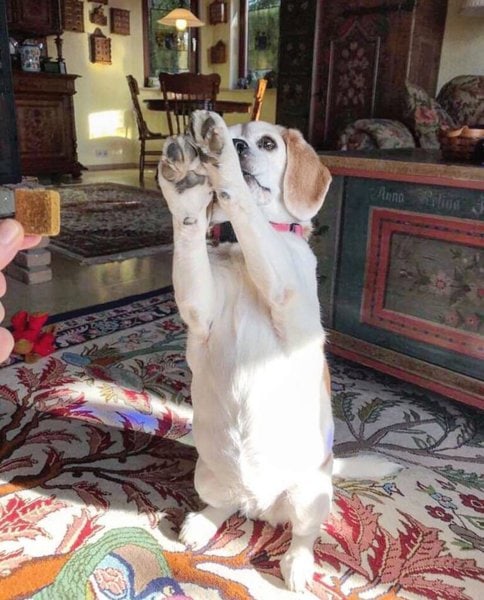
Ear Hygiene
The best solution to prevent an ear infection is top-notch ear hygiene by regularly cleaning. Ensure you clean your pooch’s ears as part of its regular hygiene regimen. This goes a long way in preventing ear infections caused by ear mites, injury, or wax buildup.
Behavioral Treatment
If the reason your dog spins in circles is behavioral, the best solution is behavioral training and changes in your pooch’s home routine and environment. This helps to minimize stress and anxiety.
If your vet finds your pooch normal according to everything in the test and diagnoses a behavioral issue only, the vet may refer you to an animal behaviorist to get the appropriate treatment.
In addition, if the reason your pooch is spinning in circles is from dietary issues, then your vet will recommend some dietary changes to remedy the problem.
Can I Stop My Dog From Spinning?
After a thorough checkup, your veterinarian should be able to rule out any medical conditions that may trigger the spinning behavior.
Then, the vet can prescribe medication to treat or reduce your pooch’s stress and anxiety or any other condition to minimize the compulsive outbursts.
Notably, there are other ways you can use to stop your dog from spinning, and they include:
Create Distractions
Distract your dog immediately by shaking a can with coins when your pooch starts spinning. The loud noise will stop it in its tracks. Alternatively, you can show your dog a toy and if it shows interest in the toy, praise it for reinforcing the good behavior.
Daily Workout Sessions
Treat your pooch to daily workout sessions because exercise has a calming and relaxing effect on your dog, so it will be less likely to start spinning. Set aside at least 30 minutes every day for exercise to help burn the energy it would otherwise use to spin.
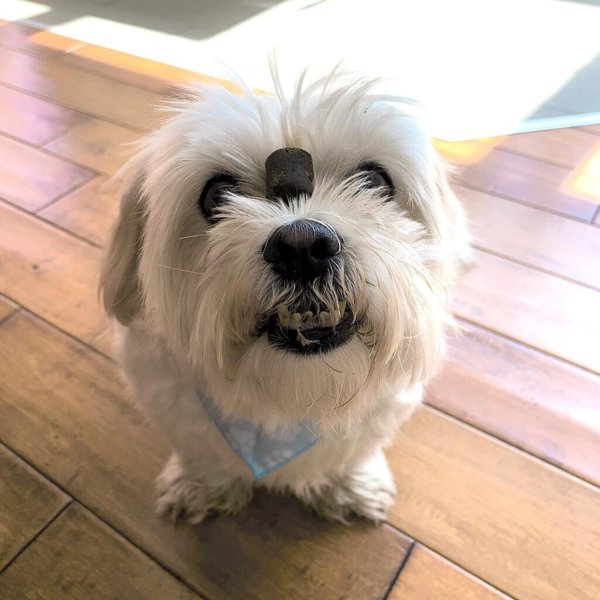
Provide Entertainment
To prevent boredom that may sometimes cause your pooch to start spinning, offer your dog plenty of entertainment. Stimulate the dog using chew toys, food-stuffed toys, and obedience training sessions.
However, avoid games that need your pooch to chase the light of a flashlight or a laser pointer, as they may reinforce the spinning.
What Should You Do If Your Dog Spins In Circles Excessively?
The obvious thing to do when you notice your dog is obsessively spinning in circles is to observe and note how often and for how long the spinning takes.
Normal spinning will last for about a minute, and this should not be a cause for alarm. However, anything more than a minute and happening several times a day should raise your eyebrows.
If your dog is spinning in circles or acting strange, it could be the onset of a serious health condition. Catching the problem early and getting proper treatment could prevent more serious problems from developing in the future.
You should schedule an appointment for your pooch immediately with your local vet, as this could save its life. After visiting a vet, you can also consider consulting with an animal behavior specialist to help break this dog habit.

